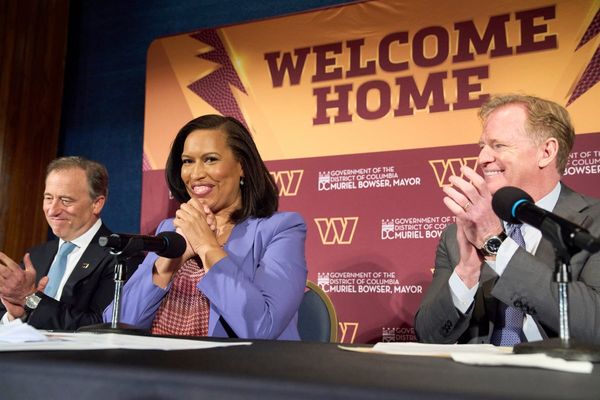
Here is a documentary for anyone who’s ever suffered from impostor syndrome or ever fantasised about going back in time to their school days, to reverse all those heartbreaks and humiliations. In other words: all of us.
In 1995, a 32-year-old failed medical student called Brian MacKinnon became a global news story and a legend when it emerged he had, two years earlier, posed as a teenager called Brandon Lee to reattend his old school, Glasgow’s Bearsden Academy, taught by his old teachers who did not recognise him, just so that he could retake his Higher exams and reapply to medical schools, which would not admit people over 30.
One of his classmates was Jono McLeod, and it is McLeod who has directed this film about MacKinnon’s extraordinary true-life tragicomedy, interviewing his school contemporaries and using animated sequences with Lulu and Clare Grogan voicing incidental characters. He also interviews MacKinnon himself who did not want to appear on camera, lip-synched instead by the actor Alan Cumming. It’s a verbatim-cinema effect which is intriguing if misleading. Cumming has a naturally approachable, sympathetic face whereas MacKinnon’s is blanker and more mask-like.
With staggering chutzpah, this grown man, not so very far from middle age, put on a school uniform and bluffed his way through class, befuddled pupils who didn’t want to mention how weirdly old he looked, delighted teachers with his intelligence and maturity and even took the starring role in the school play, South Pacific, to universal acclaim, singing the line: “Younger than springtime am I …!” He had to kiss his 16-year-old leading lady, a disputed moment which is the subject of this film’s great revelation. MacKinnon avoided having to present a birth certificate to the teacher in charge of admissions – who declined to be interviewed – bamboozling her with a preposterous tale about having been privately tutored as he travelled around Canada with his now dead opera-singer mother who was estranged from his university professor dad.
He might have got away with it entirely. In fact, he did get away with it entirely, in that he was admitted to Dundee University’s medical school, but thrown out in his first year when the scandal emerged, either because a classmate had seen his passport while on a Spanish holiday with him or because MacKinnon couldn’t help confessing – it’s not entirely clear.
Which brings us to the semi-acknowledged elephant in the room. Wasn’t there something revoltingly inappropriate in this thirtysomething male consorting with teenage girls? Fascinatingly, everyone in the South Pacific cast (including MacKinnon and his leading lady) and everyone who saw it, remembers the climactic onstage kiss being embarrassing, sure, because it was such an awkward platonic peck. But then McLeod shows the video taken of the performance, which reveals something very different: a pretty definite kiss. Groupthink memory is trumped by the facts. Then there is the sad issue of MacKinnon’s elderly mother and how much she knew about his fraud.
This is a film which could be put alongside other “faker” films, like Louis Myles’s Kaiser: The Greatest Footballer Never to Play Football or Bart Layton’s The Imposter, in that it shows us not just a rational trickster who is coolly carrying off a dangerous pretence to get what he wants, but as someone in the grip of something beyond his conscious control. And you could compare it to many high school movies: after all, the whole high school movie genre is driven by thirtysomething screenwriters who are obsessed with their school days.
My own theory is that MacKinnon’s spectacular dysfunctional meltdown helped create the market for the explosively popular, but toxically nostalgic website Friends Reunited, launched five years later in 2000. He was the guy crazy enough to live the dream: not the dream of being a medical student (which is entirely incidental to the story) but the dream (or nightmare) of being a teenager for a second time.
• My Old School is released on 19 August in cinemas.







